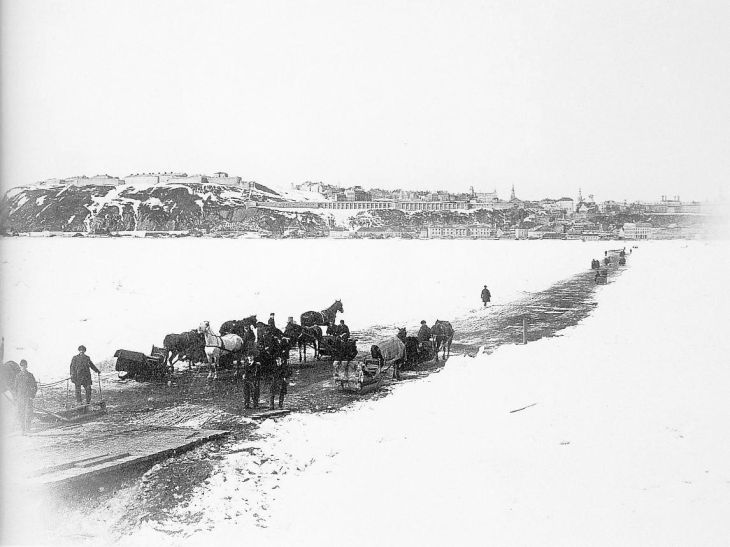Though we all share common ancestors ranging from a few generations to hundreds of thousands of years, genealogies that relate all of us are often forgotten over time. A new McGill University-led study is now providing insight into the complex relationship between human migration and genetic variation, using a unique genealogical dataset of over five million records spanning 400 years to unravel the genetic structure of French Canadian populations.
The team, including researchers from Université du Québec à Chicoutimi and the Big Data Institute at the University of Oxford, developed a new method to simulate genomes based on a population scale genealogy dating back to the arrival of the first French settlers. By comparing the simulations to real genetic data, they were able to prove that the genetic structure of this population was encoded within its genealogy.
“It is the first genetic study, in any worldwide population, that incorporates genealogical records to provide a strikingly accurate map of genetic relatedness at the population scale,” explains Simon Gravel, Associate Professor in McGill’s Department Human Genetics and one of the study’s authors.
How rivers and mountains influenced population structure
The dataset was used in part to investigate how certain historical events and landscapes have influenced the genomes of French Canadians today. The study highlights the relationship between river networks and genetic similarity, as European colonial history was marked by a rapid expansion of borders along the banks of the St. Lawrence River and its tributaries.
“This study tells the genetic story of French Canadians, showing that their population structure today is not a result of ancestral French population structure, but rather one that has been shaped by events in North America over the past four centuries,” says Prof. Gravel. “We were even able to tie a meteor impact crater in the region of Charlevoix, to the appearance of a founder effect observed in the Saguenay-Lac-Saint-Jean region.”
Using ancestral data to help identify genetic diseases and treatments
By tracing the ancestry of millions of individuals over space and time, the study bridges the gaps between family pedigrees and continental population structure, providing valuable insights into the complex tapestry of human genetic history. “Beyond mapping the rich genetic history of French Canadians, the findings have significant implications for understanding the impact of migration on genetic variation and the broader history of humanity,” adds Prof. Gravel.
The researchers are hoping that the large, freely available simulated dataset with realistic population structure and mating patterns will help improve genetic risk prediction, historical inference, and genealogical inference, which could have potential implications for identifying genetic diseases and improving medical treatments.
About the study
“On the Genes, Genealogies, and Geographies of Quebec” by Simon Gravel and al. was published in Science. A French version is available here.
About McGill University
Founded in Montreal, Quebec, in 1821, McGill University is Canada’s top ranked medical doctoral university. McGill is consistently ranked as one of the top universities, both nationally and internationally. It is a world-renowned institution of higher learning with research activities spanning three campuses, 12 faculties, 14 professional schools, 300 programs of study and over 39,000 students, including more than 10,400 graduate students. McGill attracts students from over 150 countries around the world, its 12,000 international students making up 30% of the student body. Over half of McGill students claim a first language other than English, including approximately 20% of our students who say French is their mother tongue.














